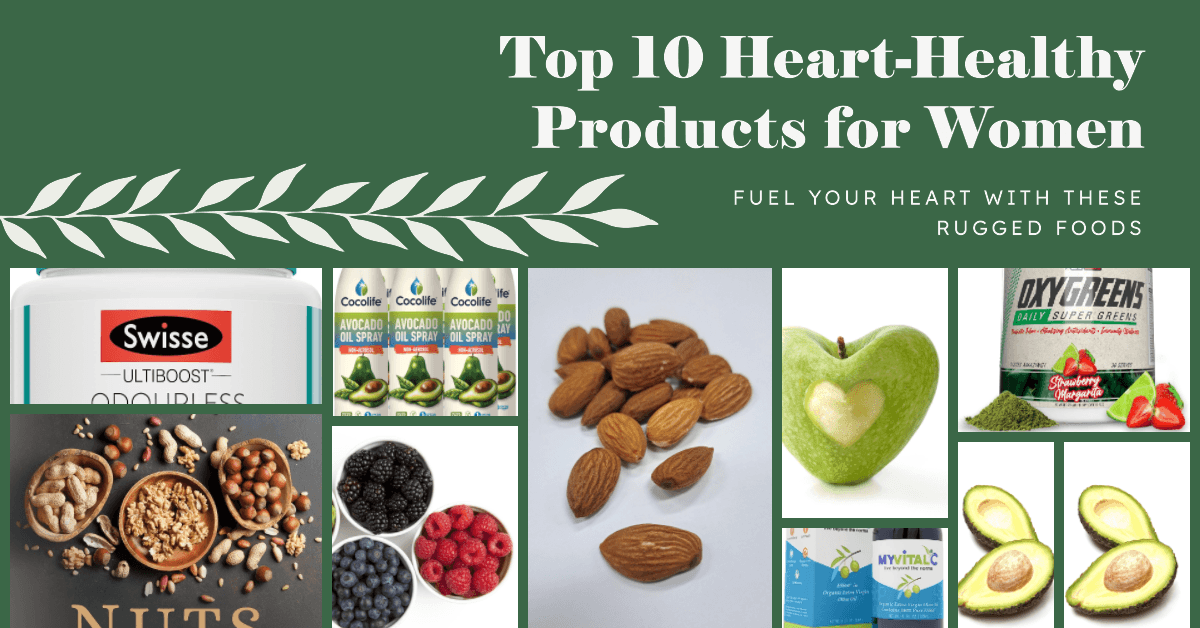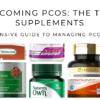Introduction
Heart-healthy products for women should be a priority in every woman’s dietary choices. Ensuring optimal cardiovascular health goes beyond regular exercise; it also involves incorporating specific foods that have proven benefits.
The article sheds light on these products, explaining why and how they can be integrated into daily meals. For instance, while most may indulge in dark chocolate for its taste, few might be aware of its heart-protective flavonoids.
Similarly, while berries make for a delightful snack, their high antioxidant content is what makes them a must-have. By understanding and adding these heart-healthy products, women can pave the way for a healthier heart and a better life.
So you’re looking to take better care of your heart, huh? Well, you’ve come to the right place! In this article, we’ll be sharing the top 10 heart-healthy products specifically designed for women.
Whether you’re aiming to improve your cardiovascular health or simply want to incorporate more nutritious options into your diet, these products are guaranteed to do wonders for your heart.
So sit back, relax, and get ready to discover some delicious and nutritious options that will keep your ticker in tip-top shape.
Key Takeaways
- Dark chocolate’s flavonoids can enhance heart health if consumed judiciously.
- Berries have potent antioxidants that counteract oxidative stress and avert arterial blockage.
- Fatty fish like salmon brims with omega-3s, reducing heart disease risk by dampening inflammation and bolstering vascular health.
- Leafy greens such as spinach and kale are nutrient powerhouses, providing essential nutrients for optimal heart health.
- Extra virgin olive oil, imbued with monounsaturated fats and antioxidants, buttresses heart health and is a Mediterranean diet cornerstone.
Top 10 Heart-Healthy Products for Women
When it comes to maintaining a healthy heart, certain foods can play a crucial role. In this article, we will explore the top 10 heart-healthy products for women. From indulgent dark chocolate to nutrient-packed leafy greens, incorporating these foods into your diet can help support cardiovascular health and overall well-being.
1. Dark Chocolate

Photo: Amazon
Dark Chocolate isn’t just a delicious treat; it’s also a powerhouse of antioxidants, essential minerals, and heart-friendly compounds. When consumed in moderation, this delectable treat can be a healthful addition to any diet.
- Contains flavonoids that support cardiovascular health.
- Loaded with vital minerals including magnesium.
- Packed with antioxidants to counteract free radicals.
- Potential mood-enhancing properties.
- Moderation can lead to reduced cardiovascular risks.
1.1 Benefits of Dark Chocolate
Yes, you read it right – dark chocolate can be good for your heart! Dark chocolate contains flavonoids, which are antioxidants that have been linked to various heart-protective benefits. These flavonoids may help reduce inflammation and lower blood pressure. Additionally, dark chocolate may improve blood flow and increase levels of HDL (good) cholesterol.
1.2 Recommended Daily Intake
While dark chocolate can have heart-healthy benefits, it’s important to consume it in moderation. Experts recommend sticking to a small portion of about 1-ounce (28 grams) per day, as it is still high in calories and can contribute to weight gain if consumed excessively.
1.3 Tips for Choosing Dark Chocolate
When choosing dark chocolate, opt for varieties that contain a high cocoa content (70% or above) and minimal added sugars. This ensures that you’re getting the most antioxidants and health benefits from your chocolate. Dark chocolate with nuts or fruits can be a delicious and nutritious option.
2. Berries
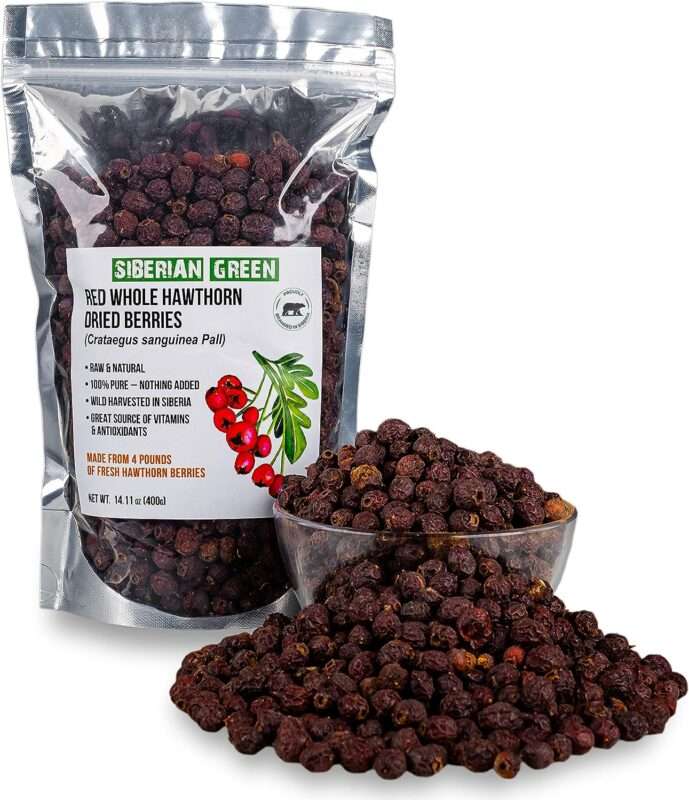
Photo: Amazon
Berries, with their vibrant colors and sweet tastes, are nature’s candies packed with nutrients. From blueberries to strawberries, these tiny fruits are big on health benefits.
- Abundant in antioxidants for cellular protection.
- Rich in dietary fiber for digestive health.
- A good source of essential vitamins like Vitamin C.
- Have anti-inflammatory attributes for skin health.
- Can help regulate blood sugar levels.
2.1 Types of Berries
Berries are not only delicious but are also packed with heart-healthy nutrients. Some common types of berries include strawberries, blueberries, raspberries, and blackberries. Each variety offers its unique combination of vitamins, minerals, and antioxidants.
2.2 Antioxidants in Berries
Berries are known for their high antioxidant content, which helps protect the heart by reducing oxidative stress and inflammation. Antioxidants, such as anthocyanins, can help prevent the buildup of plaque in arteries and improve overall heart health.
2.3 Including Berries in Your Diet
Including berries in your diet can be as simple as adding them to your morning cereal, yogurt, or smoothies. You can also enjoy them as a standalone snack, either fresh or frozen. Aim to consume a variety of berries to maximize the range of heart-healthy nutrients you get.
3. Fatty Fish
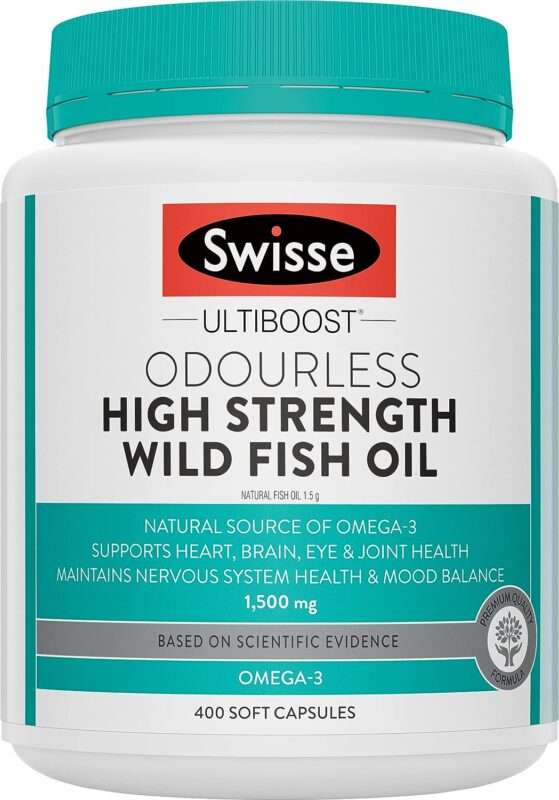
Photo: Amazon
Fatty fish, like salmon and mackerel, are marine treasures teeming with omega-3 fatty acids. Regular consumption can boost brain and heart health substantially
- Omega-3 fatty acids in abundance for inflammation reduction.
- Contributes to enhanced memory and brain function.
- Promotes cardiovascular health.
- A natural source of Vitamin D.
- Protects against chronic ailments.
3.1 Omega-3 Fatty Acids
Fatty fish, such as salmon, mackerel, and sardines, are excellent sources of omega-3 fatty acids. Omega-3s are essential fats that have been shown to reduce the risk of heart disease by lowering triglyceride levels, decreasing inflammation, and improving blood vessel function.
3.2 Best Types of Fatty Fish
When choosing fatty fish, opt for wild-caught varieties rather than farm-raised fish, as they tend to have higher levels of omega-3 fatty acids. Aim to consume fatty fish at least twice a week to reap the heart-healthy benefits. If you are vegetarian or don’t enjoy fish, consider taking omega-3 supplements derived from algae.
3.3 Cooking Techniques for Fatty Fish
To preserve the heart-healthy nutrients in fatty fish, it’s best to opt for cooking methods such as baking, grilling, or steaming instead of frying. This helps retain the omega-3s and prevents the addition of unnecessary unhealthy fats.
4. Leafy Greens
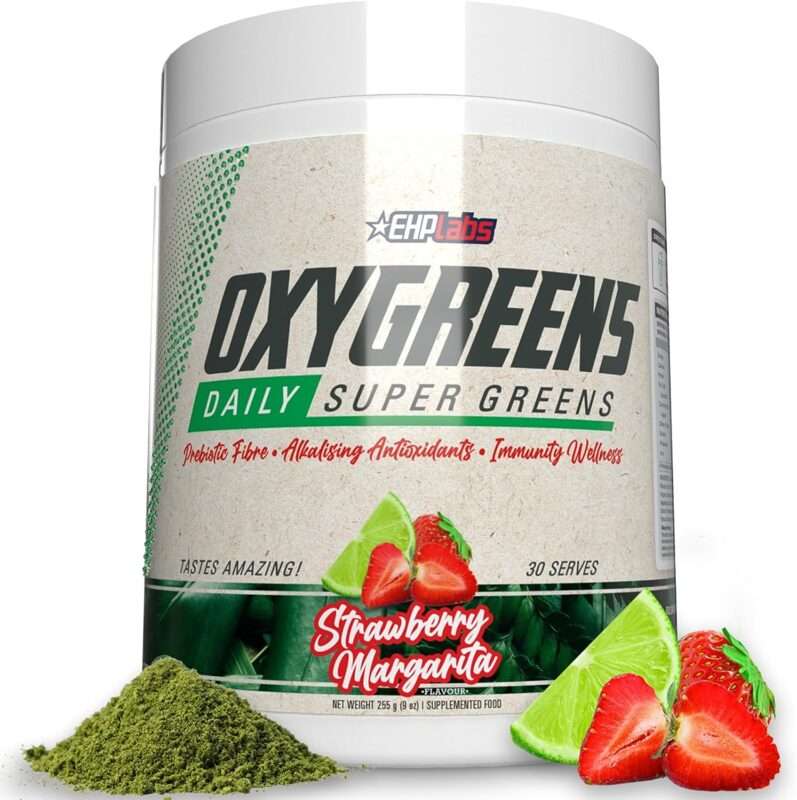
Photo: Amazon
Leafy greens, from spinach to kale, are the unsung heroes of the vegetable world. Packed with nutrients, they offer a plethora of health benefits.
- Fiber-rich for improved digestion.
- High content of vitamins, notably Vitamin K.
- Contains lutein and zeaxanthin for eye health.
- Acts as a natural detoxifier.
- Aids in weight management due to low calories.
4.1 Importance of Leafy Greens
Leafy greens, including spinach, kale, and Swiss chard, are nutritional powerhouses when it comes to heart health. These greens are rich in vitamins, minerals, and antioxidants, making them an excellent addition to any heart-healthy diet.
4.2 Nutrients in Leafy Greens
Leafy greens are packed with nutrients like potassium, folate, and fiber, which are all beneficial for heart health. Potassium helps lower blood pressure, folate reduces homocysteine levels (a risk factor for heart disease), and fiber aids in digestion and overall heart function.
4.3 Incorporating Leafy Greens into Meals
There are endless ways to incorporate leafy greens into your meals. You can add them to salads, sauté them as a side dish, blend them into smoothies, or even toss them into soups and stews. Get creative and experiment with different recipes to find new and exciting ways to enjoy these heart-healthy greens.
5. Whole Grains

Photo: Amazon
Whole grains, in their unrefined glory, serve as a staple in many diets around the world. They are a cornerstone for a balanced and nutritious meal plan.
- High fiber content aids digestion and fullness.
- Assists in cholesterol management.
- Full of B-vitamins and essential minerals.
- Provides steady energy for the body.
- Can diminish risks of ailments like diabetes.
5.1 Heart-Healthy Benefits of Whole Grains
Whole grains, such as oats, quinoa, brown rice, and whole wheat, are a key component of a heart-healthy diet. They are rich in fiber, which helps lower cholesterol levels and reduce the risk of heart disease. Whole grains also contain important nutrients like magnesium and potassium, which support cardiovascular health.
5.2 Choosing Whole Grain Products
When purchasing whole grain products, look for labels that indicate “100% whole grain” or “whole wheat” to ensure you’re getting the full benefits. Avoid processed or refined grains, as they have been stripped of their fiber and nutrients. Incorporate whole grains into your diet by choosing whole grain bread, pasta, and cereal over their refined counterparts.
5.3 Delicious Ways to Include Whole Grains
From hearty oatmeal for breakfast to quinoa salads for lunch or whole wheat pasta for dinner, there are endless delicious ways to include whole grains in your meals. Experiment with different recipes and varieties of whole grains to keep your meals exciting and nutritious.
6. Nuts and Seeds
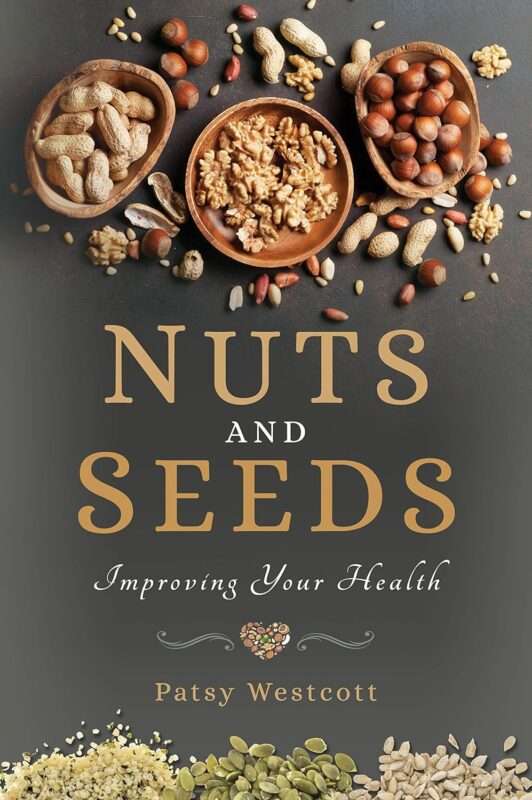
Photo: Amazon
Nuts and seeds are nature’s snack pack, bursting with nutrients, good fats, and health-boosting properties. They’re the ideal snack for both health and taste.
- Contains heart-beneficial fats.
- Loaded with antioxidant properties.
- An excellent provider of protein and fiber.
- Offers minerals such as zinc and magnesium.
- Supports healthy cholesterol balance.
6.1 Nutritional Value of Nuts and Seeds
Nuts and seeds are a heart-healthy snack option due to their high content of unsaturated fats, fiber, vitamins, and minerals. Walnuts, almonds, flaxseeds, and chia seeds are excellent choices that can provide numerous benefits for heart health and overall well-being.
6.2 Examples of Heart-Healthy Nuts and Seeds
Walnuts, for instance, are rich in omega-3 fatty acids and can help reduce inflammation and improve blood vessel function. Almonds are packed with vitamin E, magnesium, and fiber, all of which are beneficial for heart health. Flaxseeds and chia seeds are high in omega-3s, fiber, and antioxidants.
6.3 Incorporating Nuts and Seeds into Your Diet
One of the easiest ways to incorporate nuts and seeds into your diet is to enjoy them as a snack on their own. You can also sprinkle them over salads, yogurt, or oatmeal for added texture and nutrition. However, be mindful of portion sizes, as nuts and seeds are high in calories. Stick to a handful (about 1 ounce) per day.
Any Questions🤔?
Reach out to us! We’re here to clarify and prioritize your well-being. 🌟
7. Avocado
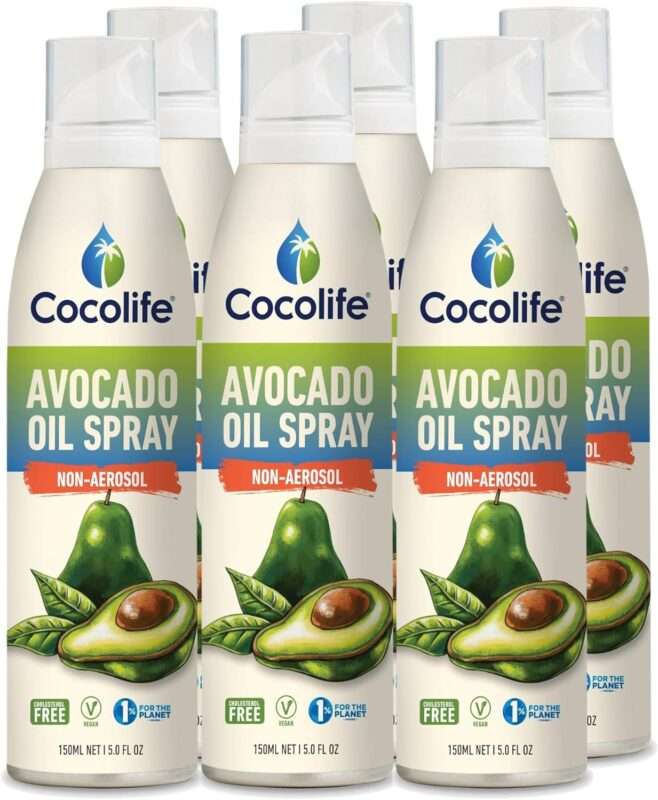
Photo: Amazon
Avocado, with its creamy texture and unique taste, is more than just a trendy food item. It’s a nutrient-dense fruit that offers a range of health benefits.
- A rich source of heart-healthy monounsaturated fats.
- High in potassium, outdoing even bananas.
- Soluble fiber content supports gut health.
- Lutein and zeaxanthin antioxidants for vision.
- Known to decrease levels of bad cholesterol.
7.1 Health Benefits of Avocado
Avocado is a unique fruit that is loaded with heart-healthy monounsaturated fats. These healthy fats help lower bad cholesterol levels and reduce the risk of heart disease. Avocado also provides a good amount of fiber, vitamins, and minerals, making it a great addition to a heart-healthy diet.
7.2 Ways to Enjoy Avocado
There are endless ways to enjoy the creamy goodness of avocado. You can slice it onto whole grain toast, mash it into guacamole, or add it to salads, sandwiches, and wraps. Avocado can even be used as a substitute for unhealthy fats such as butter or mayonnaise in recipes.
7.3 Avocado as a Healthy Fat
While avocado is a healthy fat, it’s important to consume it in moderation due to its high calorie content. Aim for about half an avocado per day to reap the heart-healthy benefits without overindulging.
8. Green Tea
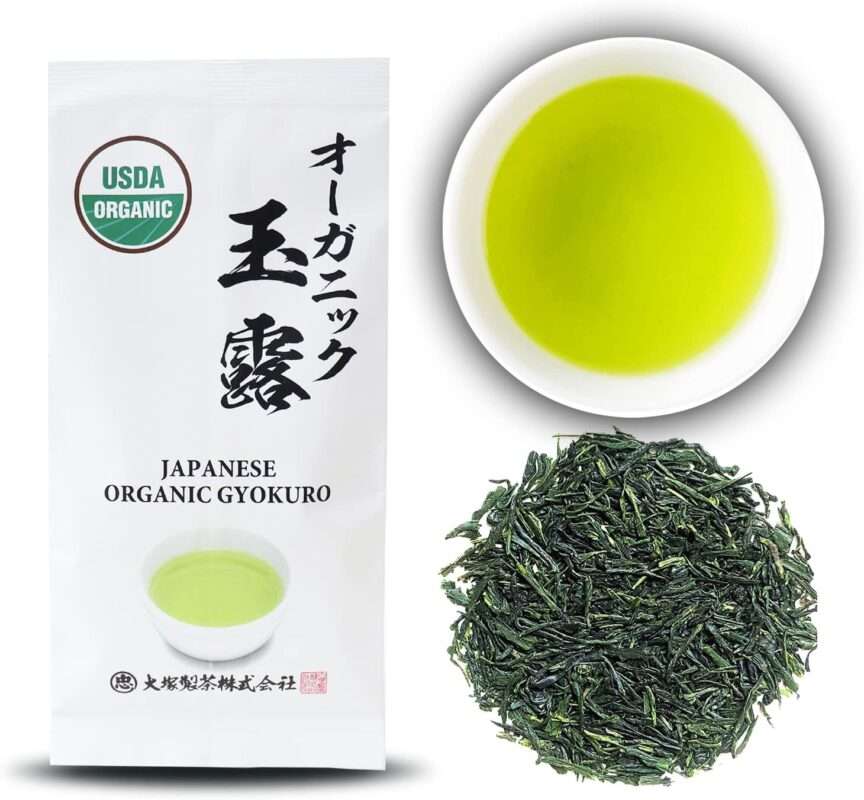
Photo: Amazon
Green tea, hailed from ancient traditions, is a beverage teeming with antioxidants and other health-enhancing properties. It’s more than just a soothing drink; it’s a health tonic.
- Brimming with antioxidants, particularly catechins.
- May enhance metabolism and aid in fat reduction.
- Supports cardiovascular wellness.
- Beneficial compounds promote brain health.
- Possesses cancer-risk reducing properties.
8.1 Antioxidants in Green Tea
Green tea is a popular beverage known for its antioxidant properties. It contains catechins, a type of antioxidant that helps protect cells from damage and reduce the risk of heart disease. The specific catechin called EGCG (epigallocatechin gallate) has been associated with cardiovascular benefits.
8.2 Brewing the Perfect Cup of Green Tea
To brew the perfect cup of green tea, start with water just below boiling temperature, around 170-180°F (77-82°C). Steep the tea bag or loose tea leaves for about 2-3 minutes to extract the optimal level of antioxidants. Avoid adding excessive sugar or sweeteners, as they can negate the health benefits of green tea.
8.3 Other Ways to Incorporate Green Tea
If you’re not a fan of hot tea, you can still enjoy the benefits of green tea by incorporating it into other recipes. Try adding green tea powder (matcha) to smoothies, baked goods, or even homemade ice cream for a heart-healthy twist.
9. Legumes
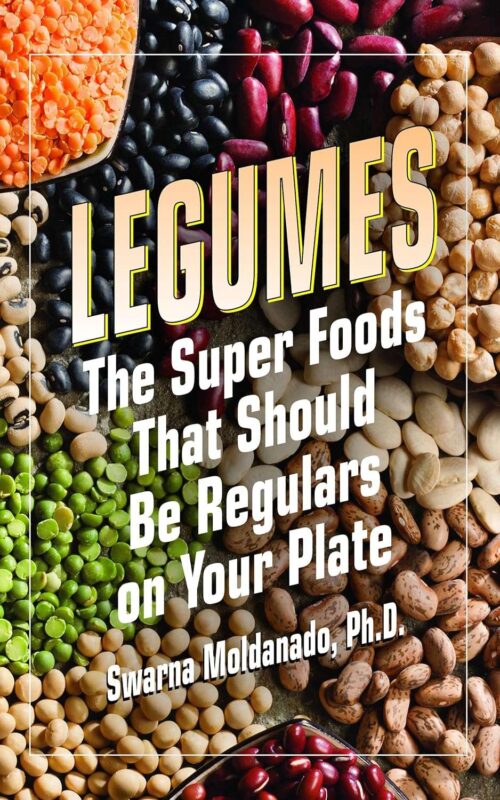
Photo: Amazon
Legumes, which include beans, lentils, and chickpeas, are nutrient-dense foods that are an excellent source of protein and other vital nutrients.
- A strong plant-derived protein source.
- Fiber-rich for enhanced digestion.
- Packed with vital minerals such as iron.
- Low in fats aiding weight regulation.
- Encourages heart health and blood sugar balance.
9.1 Types of Legumes
Legumes are a diverse group of plants that include beans, lentils, chickpeas, and peas. They are an excellent source of plant-based protein, fiber, vitamins, and minerals. Incorporating legumes into your diet can have numerous benefits for heart health.
9.2 Nutritional Benefits of Legumes
Legumes are low in fat and high in fiber, making them great for heart health. They can lower LDL (bad) cholesterol, stabilize blood sugar levels, and promote healthy digestion. Legumes are also rich in potassium, magnesium, and folate, which contribute to a healthy heart.
9.3 Adding Legumes to Your Diet
There are endless ways to add legumes to your diet. They can be used in soups, stews, salads, stir-fries, or even made into veggie burgers or dips. Experiment with different legumes and recipes to find your favorite way to enjoy these heart-healthy plant-based proteins.
10. Extra Virgin Olive Oil
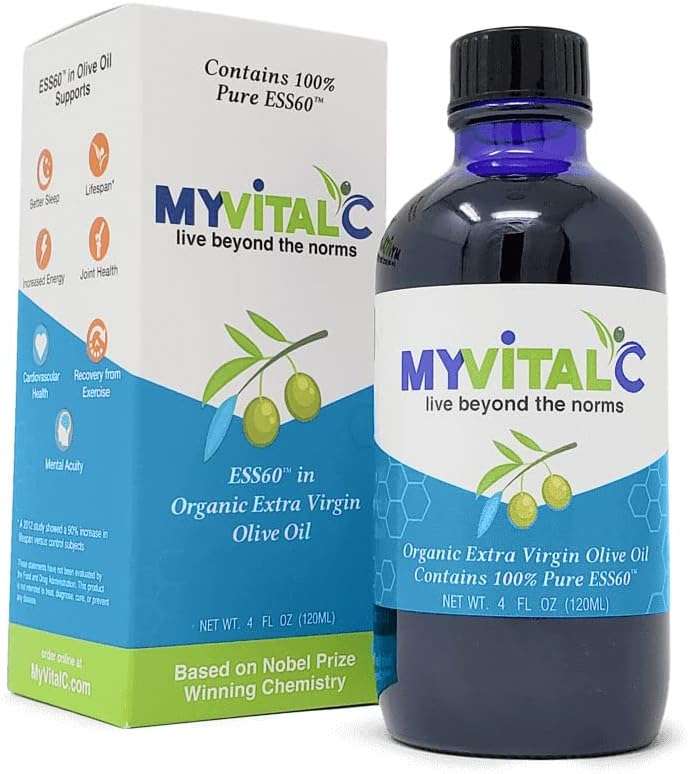
Photo: Amazon
Extra Virgin Olive Oil is not just a culinary delight but also a liquid gold when it comes to health benefits. A cornerstone of the Mediterranean diet, it’s celebrated globally for its myriad of health benefits.
- Contains heart-beneficial monounsaturated fats.
- Antioxidants in abundance counter inflammation.
- Contains anti-bacterial compounds.
- A known aid in blood pressure regulation.
- Encourages a balance in cholesterol types.
10.1 Benefits of Extra Virgin Olive Oil
Extra virgin olive oil (EVOO) is a staple of the heart-healthy Mediterranean diet. It is rich in monounsaturated fats, which can help improve cholesterol levels and reduce the risk of heart disease. EVOO also contains antioxidants and anti-inflammatory compounds that further support cardiovascular health.
10.2 Proper Usage and Storage
To fully enjoy the benefits of EVOO, it’s important to use it correctly. Opt for cold-pressed or extra virgin olive oil, as these varieties undergo minimal processing and retain more nutrients. Store it in a cool, dark place to prevent oxidation. Avoid heating EVOO at high temperatures, as it has a low smoke point and can break down, losing its nutritional value.
10.3 Cooking with Olive Oil
Olive oil can be used for a variety of cooking methods, such as sautéing, roasting, or dressing salads. However, keep in mind that it is still high in calories, so use it in moderation. Use olive oil as a substitute for other cooking oils or butter to add heart-healthy fats to your meals.
By incorporating these top 10 heart-healthy products into your diet, you can take proactive steps towards promoting cardiovascular health and overall well-being. Remember to enjoy these foods in moderation, alongside a balanced diet and regular physical activity, for optimal heart health.
FAQ (Frequently Asked Question)
Q: What are some heart-healthy foods specifically for women?
A: The article lists 10 products, including dark chocolate, berries, fatty fish, leafy greens, whole grains, nuts and seeds, avocado, green tea, legumes, and extra virgin olive oil.
Q: Is dark chocolate genuinely beneficial for heart health?
A: Yes, dark chocolate contains flavonoids which are antioxidants that have been associated with various heart-protective benefits, such as reducing inflammation and improving blood flow.
Q: How can I include berries in my diet for better heart health?
A: You can add berries to your morning cereal, yogurt, or smoothies, or even enjoy them as a standalone snack. They are high in antioxidants that help in reducing oxidative stress and inflammation.
Q: What’s the significance of fatty fish in a heart-healthy diet?
A: Fatty fish like salmon, mackerel, and sardines are rich in omega-3 fatty acids which have been shown to reduce the risk of heart disease by improving blood vessel function and decreasing inflammation.
Q: Why is extra virgin olive oil considered heart-healthy?
A: Extra virgin olive oil is rich in monounsaturated fats that can help improve cholesterol levels, reduce the risk of heart disease, and it also contains antioxidants and anti-inflammatory compounds.
Conclusion
In this journey through heart-healthy nourishment, we have unveiled ten incredible products that can remarkably support and uplift women’s cardiovascular health. From the indulgent bites of Dark Chocolate, bursting with beneficial flavonoids, to the vibrant assortment of Berries, packed with antioxidants, every item on our list has its own set of unique benefits. Fatty Fish, such as salmon, deliver an abundance of omega-3s, while Leafy Greens are a treasure trove of essential nutrients and fiber.
Furthermore, Whole Grains stand as the dietary staple offering a balance of energy and health, while Nuts and Seeds provide the essential fatty acids that our hearts love. Avocado, with its luxurious texture, is more than just a delightful taste; it’s a monounsaturated fat powerhouse. And let’s not forget the revitalizing and antioxidant-rich Green Tea, which has graced cultures for centuries with its benefits.
Moreover, Legumes make their mark as a plant-derived protein source that can seamlessly fit into various dishes. Lastly, drizzling Extra Virgin Olive Oil over our meals not only adds a touch of the Mediterranean but also showers us with heart-healthy fats and antioxidants.
Embracing these ten products in one’s diet can be a transformative step towards fostering a heart-healthy lifestyle. Women, in particular, can leverage these foods to nourish their hearts and ensure they’re pumping strong and steady for years to come. Remember, it’s not just about adding years to our life, but life to our years. And a heart-healthy diet is undoubtedly a cornerstone of such a vibrant life.
Disclaimer
Please keep in mind that nothing said here should be construed as a substitute for professional medical or financial advice from a qualified financial advisor or a licensed healthcare provider. If you use pharmaceuticals or have concerns after reading the above review information, be sure to speak with a qualified physician or financial expert before making any purchasing decisions. Since the claims made about these products have not been reviewed by the Food and Drug Administration or Health Canada, individual outcomes may differ and cannot be guaranteed. Research that has been approved by the FDA or Health Canada has not attested to the efficacy of these products. These goods do not offer any form of get-rich-quick scheme and are not designed to diagnose, treat, cure, or prevent any ailment. The reviewer disclaims all liability for incorrect pricing. For exact prices, view the product sales page

